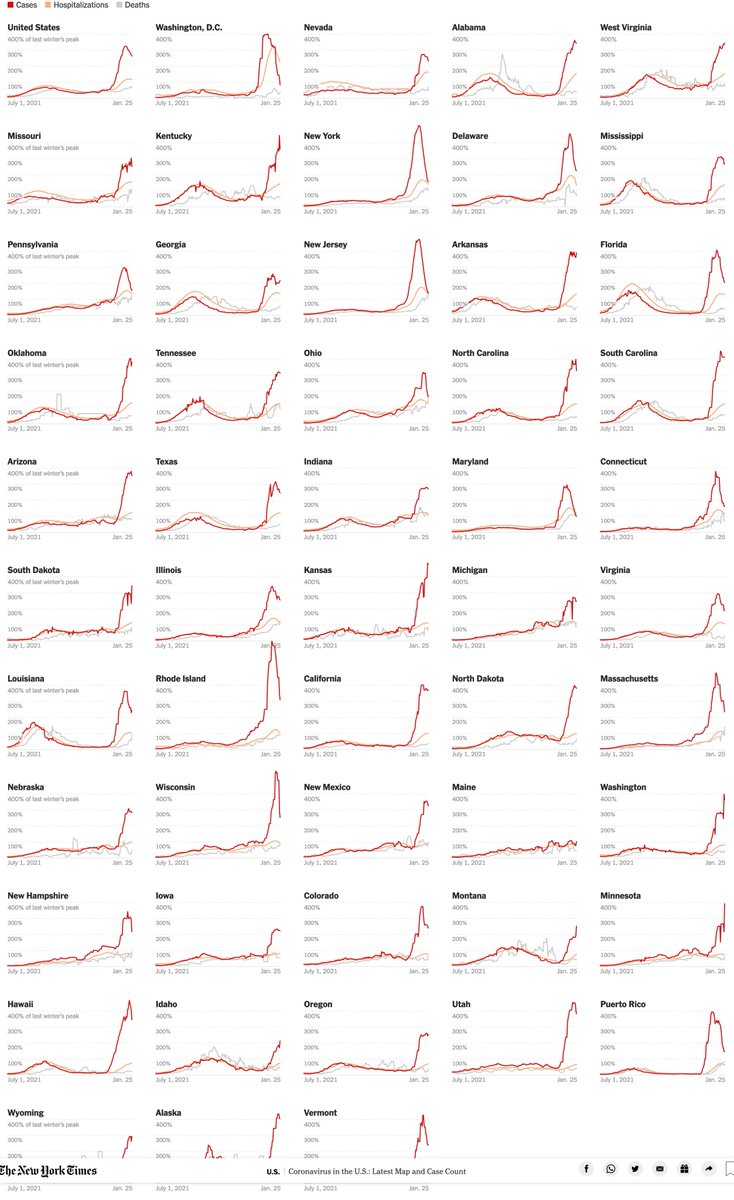1/ Q: Thinking about #MentalHealthAwarenessWeek: is there anything new I can try to improve my mental health during the #COVID19 crisis?
A: Yes, there is and there is hope! Read on
A: Yes, there is and there is hope! Read on
2/ Let's start with the facts. A recent report from @KFF estimates 45% of Americans suffered worse mental health since start of the pandemic:
kff.org/health-reform/…
It appears that more than the 1 in 5 Americans struggle with their mental health in a given year.
kff.org/health-reform/…
It appears that more than the 1 in 5 Americans struggle with their mental health in a given year.
3/ So perhaps the good news is that, because we are all experiencing this together, more and more resources are popping up every day. And for the #nerdygirls, this also means we will be getting more data (and hopefully more answers on what works/doesn't work).
4/ In the meantime, here are some resources:
1-Researchers in Israel developed a scale rating how #Covid_19 affects mental health. It can help us understand, track, and even reflect on our symptoms.
psychologytoday.com/us/blog/fulfil…
1-Researchers in Israel developed a scale rating how #Covid_19 affects mental health. It can help us understand, track, and even reflect on our symptoms.
psychologytoday.com/us/blog/fulfil…
5/
2-A range of free apps popped up during the #COVID pandemic, including #therapy and group apps. It seems like these multiply every time we check! nycwell.cityofnewyork.us/en/covid-19-di…
2-A range of free apps popped up during the #COVID pandemic, including #therapy and group apps. It seems like these multiply every time we check! nycwell.cityofnewyork.us/en/covid-19-di…
6/
3-The Life Kit segment on @NPR, for those who might like to listen to audio. Segments on #dating, how to talk to a friend who is struggling, and #parenting tips delivered by Elmo and even Grover! npr.org/lifekit
3-The Life Kit segment on @NPR, for those who might like to listen to audio. Segments on #dating, how to talk to a friend who is struggling, and #parenting tips delivered by Elmo and even Grover! npr.org/lifekit
7/
4-Learn the strategies of psychological first aid, developed specifically to train people to provide intervention strategies after disasters: coursera.org/learn/psycholo…
4-Learn the strategies of psychological first aid, developed specifically to train people to provide intervention strategies after disasters: coursera.org/learn/psycholo…
8/
Finally, here are seven science based strategies to cope with coronavirus anxiety:
Tip 1: Practice tolerating uncertainty (For example: Don't check the weather!)
Tip 2: Go face to face with anxiety (*Kindly, and non-judgementally, acknowledge any anxious thoughts).
Finally, here are seven science based strategies to cope with coronavirus anxiety:
Tip 1: Practice tolerating uncertainty (For example: Don't check the weather!)
Tip 2: Go face to face with anxiety (*Kindly, and non-judgementally, acknowledge any anxious thoughts).
9/
Tip 3: Figure out your why (*How do you want to spend your time on this earth? Deep, we know).
Tip 4: Remember that you are resilient (*We often forget that we have faced challenges before).
Tip 3: Figure out your why (*How do you want to spend your time on this earth? Deep, we know).
Tip 4: Remember that you are resilient (*We often forget that we have faced challenges before).
10/
Tip 5: Don't overestimate the threat (*We should follow guidelines, but reduce anxiety by restricting our news consumption).
Tip 6: Self care! (*No this is not about pedicures. Simple things: sleep well, eat well, drink water, get outside, and exercise if you can).
Tip 5: Don't overestimate the threat (*We should follow guidelines, but reduce anxiety by restricting our news consumption).
Tip 6: Self care! (*No this is not about pedicures. Simple things: sleep well, eat well, drink water, get outside, and exercise if you can).
11/ Tip 7: Seek additional help if you need it (*There may be a point when these strategies are not enough. It is OK to need additional support.)
theconversation.com/7-science-base…
theconversation.com/7-science-base…
12/ We are all in this together and figuring things out along the way. If you or your loved ones are in a crisis, you can always call 1-800-273-8255 or text "TALK" to 741741.
• • •
Missing some Tweet in this thread? You can try to
force a refresh









